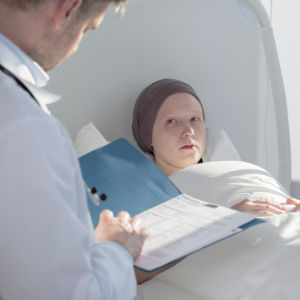As a doctor, how do you choose which of your patients gets their next dose of treatment and which patient does not? As a parent, how do you live with the thought that missing a few weeks of your child’s drug treatment may have been what caused your child’s cancer to return? These are inconceivable choices that doctors and patients across the country are facing in anticipation of the next drug shortage.
Having to ration cancer treatment for children is not something you would expect in a country touted as having the best medical treatments and healthcare. In the absence of formal guidelines for doctors to follow for rationing pediatric cancer drugs, institutions are left with the impossible decision of which child continues treatment and which child doesn’t. It is completely unacceptable when the ability to save both exists. How do you decide the value of a human life?
An ethical framework designed to help doctors understand how to allocate scarce life-saving chemotherapy and supportive care drugs for kids with cancer was recently published by the Journal of the National Cancer Institute. While it’s helpful that this guidance is now available, I continue to be stunned that we are even in a position to need to create such guidelines in the first place.
The frightening reality is that we know a shortage will happen again, and we need to be prepared to make these difficult, ethical decisions. But, the bigger question is why can’t we resolve this issue for good as other countries have? Why are we only preparing for the worst case scenario and not also addressing the root problem, a problem that exists almost exclusively in the United States? That fact alone should garner action as we are most certainly not meeting the needs of this patient population.
So what causes drug shortages? According to the FDA, the main reason for shortages is manufacturing deficiencies leading to production shutdowns. Shortages also result from pharmaceutical companies halting production of drugs with low profit margins, companies consolidating in the generic drug industry and supplies of some ingredients shrinking.
I stand with the childhood cancer community and feel strongly that this problem is preventable. While the new guidance will help when the next drug shortage occurs, we need a comprehensive approach that addresses these underlying issues, and challenges FDA and drug manufacturers to be held accountable and provide a reliable safety net so that shortages do not occur.
All kids are special, and they should be treated that way, but that isn’t possible if the treatments developed for their unique needs aren’t available. Among my loved ones, I count survivors and many whose lives have been cut short by cancer. I have had the privilege of meeting countless children and physicians and I cannot fathom the needless and emotional pain endured by families because we as a country won’t hold our leaders accountable to solve problems that are in our power to solve. We must stand together and encourage policy makers to ensure that the right structures are in place to safeguard against future childhood cancer drug shortages. Having cancer is bad enough; not having access to a treatment that already exists shouldn’t be part of the battle.

